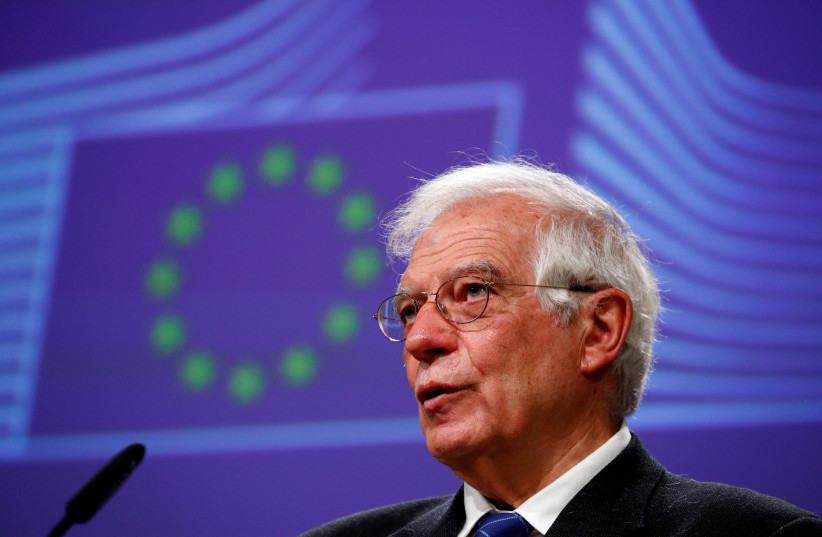The European Union has imposed sanctions on six individuals who provide financial assistance to Hamas, Maariv reported on Friday.
The six are: Sudanese businessman Abdel-Bast Hamza, Lebanese businessmen Nabil Shoman and his son Khaled, the Lebanese businessman Rada Ali Hamis, member of Hamas's political bureau Musa Dodin, and Ayman Ahmed Al-Davik - a Jordanian businessman who lives in Algeria and helps manage Hamas's investment portfolio.
Those listed under the sanctions will have their assets frozen, and the provision of funds or economic resources, directly or indirectly, to them or for their benefit is prohibited. Additionally, they will be under a travel ban to the EU.
New framework to hold terrorists accountable
In addition, the Council established a framework of restrictive measures that will permit the European Union to hold any individual or entity who supports, facilitates or enables violent actions by Hamas and the Palestinian Islamic Jihad (PIJ) accountable on Friday.
"With today's decision of a dedicated framework of restrictive measures against supporters of violent actions by Hamas and the Palestinian Islamic Jihad, the European Union shows that we are ready to take decisive steps to react to the brutality shown by terrorists on October 7. Israelis and Palestinians deserve to live in a just, lasting, and secure peace," Josep Borrell, the High Representative for Foreign Affairs and Security Policy, commented.

The decision for the new framework was made in light of the the October 7 attacks against Israel and the need to fight against violent extremism that threatens international peace and security. It also aims to prevent violence by Hamas and PIJ in the future.
This new framework also complements the restrictive measures that were previously adopted against Hamas and the PIJ where they were listed on the ‘EU terrorist list’. Several of its members have also been added to the list as individuals.
Under this new framework, the EU is able to target those who support, materially or financially, Hamas or the PIJ. It may also target those who participate in the planning, preparation or enabling of violent actions by Hamas or the PIJ.
Individuals, groups, entities, and bodies will also be listed for activities such as: supplying, selling, or transferring arms and related materiel to the two terrorist organizations; supporting actions which undermine or threaten the stability or security of Israel in conjunction with Hamas and the PIJ; being involved in serious violations of international humanitarian law or human rights law; inciting or publicly provoking violent actions of the two organizations.
The new sanctions framework shall apply until 19 January 2025. It will be under constant review and renewed or amended as appropriate, if the Council deems that its objectives have not been met.
